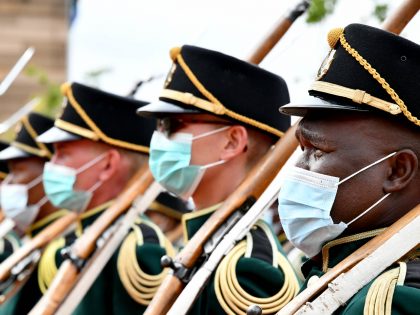
Museveni’s goons are polite
Uganda’s rulers don’t get that clobbering words is impossible. The pen will escape every hammer, and cross borders to haunt oppressors, even if the authors are no longer around.

Uganda’s rulers don’t get that clobbering words is impossible. The pen will escape every hammer, and cross borders to haunt oppressors, even if the authors are no longer around.

Fear of the future, longing for the past: the new story in South African politics.

Tunisia had sought to Arabize itself since independence and failed. It's relation to France still very much defines the country's character.

Hausa poetics of compassion and resistance in northern Nigeria in the age of pandemics and neoliberal democracy.

Documenting an urban housing crisis and how tens of thousands of informal workers and unemployed people struggle to reshape Johannesburg.

Safi Faye's 1976 film, 'A Farmer's Love Letter,' exposes the gap between the post-colonial state and the concerns of ordinary people.

Which theology we will use to make sense of the relationship between church and state in Kenya?

Indigenous traditions possess the greatest potential for developing robust civic values and identity in Africa.

For his third term, Lula faces the ghosts of Bolsonarismo, contradictions in his own ruling coalition, and tough global conditions. On our podcast this week.

Mainstream discourses about Aamajiranci, northern Nigeria’s Qur'anic schooling system, expose the power politics of knowledge in postcolonial societies.

Amilcar Cabral’s influence stretched far beyond the Portuguese colonies, profoundly influencing the political struggle in South Africa, past and present.

A bleak new television drama, ‘Donkerbos,’ explores secrets in small town South Africa, but fails to offer alternatives to the tropes of good vs evil.